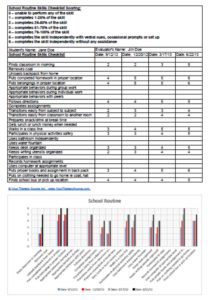Manual Motor Skills, Daily Living Skills and Autism
Developmental Science published research examining the longitudinal development of manual motor skills and daily living skills in individuals with autism spectrum disorder (ASD). Longitudinal grip strength and finger tapping, along with the relationship to current and future daily living skills, was evaluated in 90 individuals with ASD and 56 individuals with typical development who ranged in age from 5 to 40 years old.
The results indicated the following:
- the participants with ASD exhibited atypical motor development, characterized by similar performance during childhood but increasingly poorer performance from adolescence into adulthood.
- grip strength was correlated with current adaptive daily living skills.
- Time 1 grip strength predicted daily living skills eight years into the future.
The researchers concluded that individuals with ASD may experience increasingly more pronounced motor difficulties from adolescence into adulthood and that manual motor performance in ASD is related to adaptive daily living skills.
Reference: Travers, B. G., Bigler, E. D., Duffield, T. C., Prigge, M. D., Froehlich, A. L., Lange, N., … & Lainhart, J. E. (2016). Longitudinal development of manual motor ability in autism spectrum disorder from childhood to mid‐adulthood relates to adaptive daily living skills. Developmental science.
Life Skills Checklists help track progress towards routine life skills needed to succeed in the school, home and community. The checklists have been created in Microsoft Excel. When you record a score for each life skill, it automatically enters into the graph for a visual representation of progress. If you are using the document in PDF format you will have to hand write in the score and the graphing information. This is a great resource for tracking quarterly progress and establishing goals.
- Dressing Skills
- Personal Hygiene
- Mealtime
- Food Preparation
- Chores
- Safety Skills
- School Routine
- Before and After School Routine
- Personal Health
- Interpersonal
- Transportation
- Self Advocacy
- Community Life Skills
- Pre-Vocational




